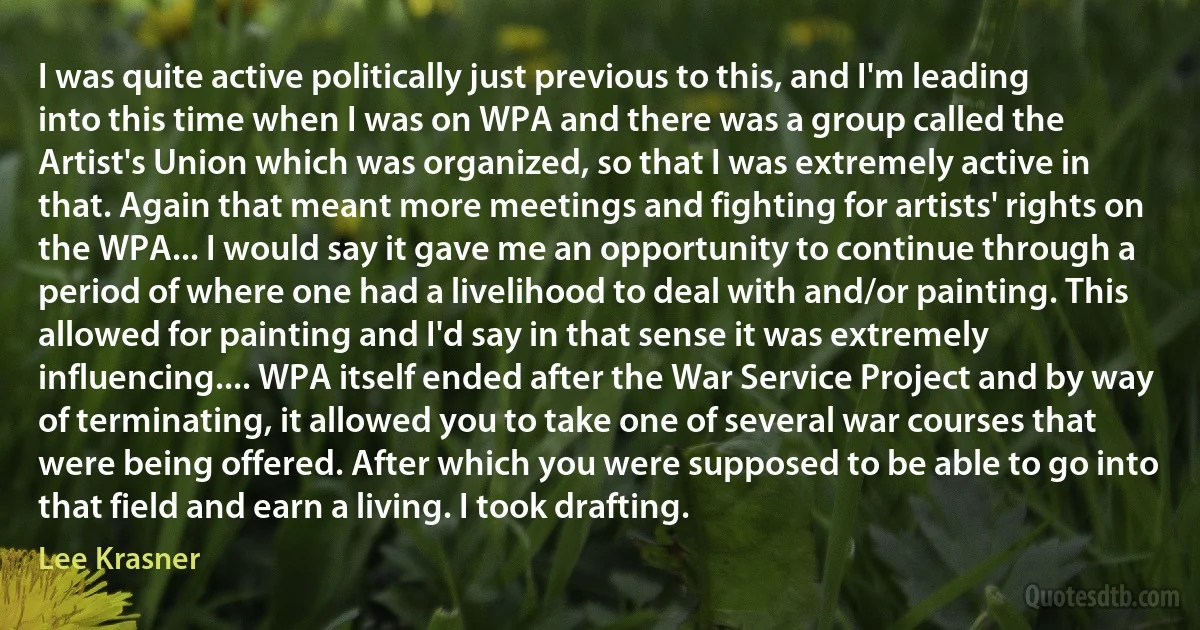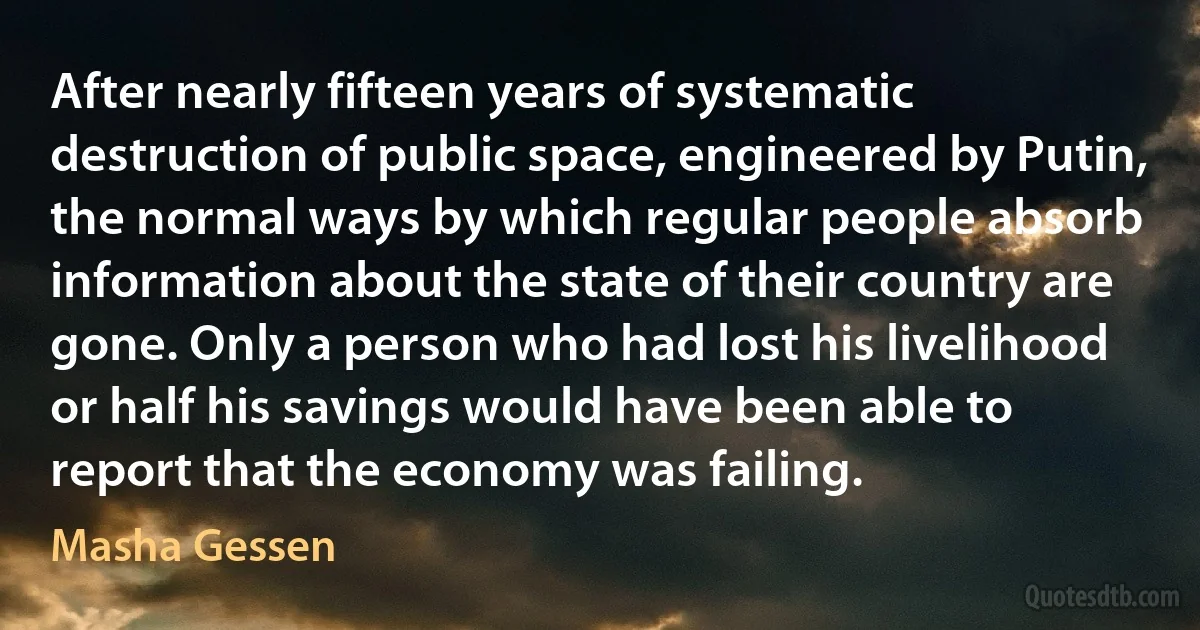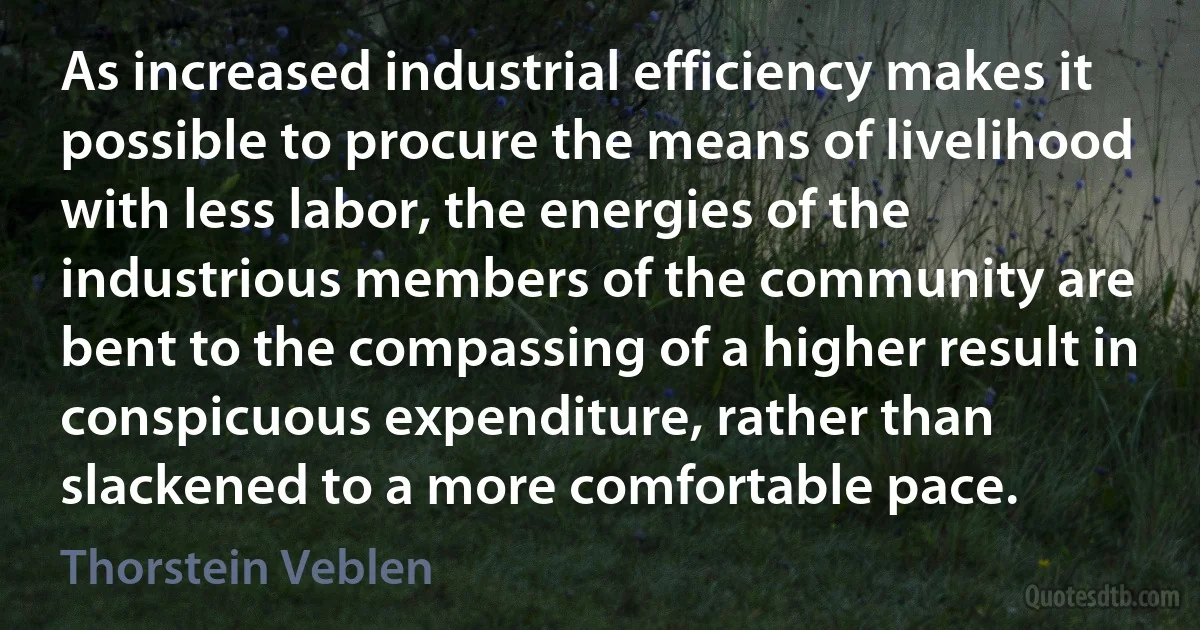Livelihood Quotes - page 2
If they will abandon the habit of mutilating, murdering, robbing, and of preventing honest persons who are attached to England from earning their livelihood, they may be sure there will be no demand for coercion. Well, you will be told you have no alternative policy. My alternative policy is that Parliament should enable the Government of England to govern Ireland. Apply that recipe honestly, consistently, and resolutely for 20 years, and at the end of that time you will find that Ireland will be fit to accept any gifts in the way of local government or repeal of coercion laws that you may wish to give her. What she wants is government-government that does not flinch, that does not vary-government that she cannot hope to beat down by agitations at Westminster-government that does not alter in its resolutions or its temperature by the party changes which take place at Westminster.

Robert Gascoyne-Cecil, 3rd Marquess of Salisbury
I started selling my portraits. Sizing up my customer, I charged ten or twenty francs a caricature, and it worked like a charm. Within a month my clientele had doubled. Had I gone on like that I'd be a millionaire today. Soon I was looked up to in the town, I was 'somebody'. In the shop-window of the one and only frame-maker who could make out a livelihood in Le Havre, my caricatures were impudently displayed, five or six abreast, in beaded frames or behind glass like very fine works of art, and when I saw troops of bystanders gazing at them in admiration, pointing at them and crying 'Why, that's so-and-so!', I was just bursting with pride.

Claude Monet
It is not the religious beliefs, whether right or wrong, which are opposed to culture and material progress, but that belief which prohibits learning of sciences, earning one's livelihood and the ways of culture. I do not believe that there is any religion in the world which opposes these things. I would rather say that it is non-believing which inevitably leads to disorder and distortion of culture as in the case of the Nihilists.

Jamal-al-Din Afghani
When all three viz., Dharma, Artha, and Kama together, the former is better than the one which follows it, i. e., Dharma is better than Artha, and Artha is better than Kama. But Artha should be always practiced by the king, for the livelihood of men is to be obtained from it only. Again, Kama being the occupation of public women, they should prefer to the other two, and these are exceptions to the general rule.

Vātsyāyana
We have at hand these great resources and great opportunities. They can not be utilized to their fullest extent without careful organization and methodical purpose. Our youth need instruction in how to play as much as they do in how to work. There are those who are engaged in our industries who need an opportunity for outdoor life and recreation no less than they need opportunity of employment. Side by side with the industrial plant should be the gymnasium and the athletic field. Along with the learning of a trade by which a livelihood is to be earned should go the learning of how to participate in the activities of recreation, by which life is made not only more enjoyable, but more rounded out and complete. The country needs instruction in order that we may better secure these results.

Calvin Coolidge
Within a system which denies the existence of basic human rights, fear tends to be the order of the day. Fear of imprisonment, fear of torture, fear of death, fear of losing friends, family, property or means of livelihood, fear of poverty, fear of isolation, fear of failure. A most insidious form of fear is that which masquerades as common sense or even wisdom, condemning as foolish, reckless, insignificant or futile the small, daily acts of courage which help to preserve man's self-respect and inherent human dignity. It is not easy for a people conditioned by fear under the iron rule of the principle that might is right to free themselves from the enervating miasma of fear. Yet even under the most crushing state machinery courage rises up again and again, for fear is not the natural state of civilized man.

Aung San Suu Kyi
University professors, restricted in this way, are quite happy about the matter, for their real concern is to earn with credit an honest livelihood for themselves and also for their wives and children and moreover to enjoy a certain prestige in the eyes of the public. On the other hand, the deeply stirred mind of the real philosopher, whose whole concern is to look for the key to our existence, as mysterious as it is precarious, is regarded by them as something mythological, if indeed the man so affected does not even appear to them to be obsessed by a monomania, should he ever be met with among them. For that a man could really be in dead earnest about philosophy does not as a rule occur to anyone, least of all to a lecturer thereon; just as the most sceptical Christian is usually the Pope. It has, therefore, been one of the rarest events for a genuine philosopher to be at the same time a lecturer in philosophy.

Arthur Schopenhauer
Historically, labor unions arose when people had gotten a taste of a different lifestyle and were willing to pay a lot more for their basic livelihood and had gotten into a fix they couldn't get out of – because they had accepted the unacceptable to begin with. Accepting something you have to form a labor union to fight after the fact only tells me that people were acting against their own best (or even good) interests for a long time. I don't see any rational, coherent explanation for this sort of behavior in humans, but it's all over the place.

Erik Naggum
There are two types of education: education for livelihood and education for life. When we study in college, it helps us to get a job so that we can earn a living. We can become a doctor, a scientist, an engineer or whatever we want. We may go on to attain wealth, possession and fame. All of this comes from education for livelihood. But this alone will never make our life full and complete. Education is not only to help us live a comfortable life of plenty. When our plans fall apart, when we face failure and loss, when we are knocked down, education should help us get back on our feet. Education should help us regain our mental equipoise, self-confidence and positive attitude, so that we can continue forward. This is why education for life is as important as education for livelihood. Education for life is spirituality.

Mata Amritanandamayi
[About whether critics have influenced his work:] None could have, because I don't read them. I doubt anyone does, except other critics. It seems like a sealed-off field with its own lieutenants, pretty much preoccupied with its own intrigues. I got a glimpse into the uses of a certain kind of criticism this past summer at a writers' conference – into how the avocation of assessing the failures of better men can be turned into a comfortable livelihood, providing you back it up with a Ph. D. I saw how it was possible to gain a chair of literature on no qualification other than persistence in nipping the heels of Hemingway, Faulkner, and Steinbeck. I know, of course, that there are true critics, one or two. For the rest all I can say is, "Deal around me.”.

Nelson Algren
.. You know that I think a society of impressionists would be a good thing of the same nature as the Society of the Twelve English Pre-Raphaelites, and I think that it could come into existence. Then I incline to think that the artists would guarantee mutually among themselves a livelihood, each consenting to give a considerable number of pictures to the Society, and that the gains as well as the losses should be taken in common.

Vincent van Gogh
The real reason for his attitude lay deeper. Essentially, Gloucester and the barons of his party were opposed to peace because they felt war to be their occupation. Behind them were the poorer knights and squires and archers of England, who, unconcerned with rights or wrongs, were "inclined to war such as had been their livelihood.”.

Barbara Tuchman
My father was a schoolmaster in a little North German town, and for the very reason that at home culture was a means of livelihood, I detested learning and literature from childhood onwards. That is nature's way. In pursuance of her mysterious design to safeguard the creative faculty, she is apt to make children scorn their father's bent. She does not want to encourage an easy, effortless acceptance of a heritage, a mere handing down of acquisitions from one generation to the next. She sows the seeds of discord, and will only allow children to follow in their parent's footsteps after they have made laborious but fruitful detours.

Stefan Zweig
In some ways, though, the securing of civil rights, voting rights, the eradication of legalized discrimination -- the very significance of these victories may have obscured a second goal of the March. For the men and women who gathered 50 years ago were not there in search of some abstract ideal. They were there seeking jobs as well as justice, not just the absence of oppression but the presence of economic opportunity. For what does it profit a man, Dr. King would ask, to sit at an integrated lunch counter if he can't afford the meal? This idea -- that one's liberty is linked to one's livelihood; that the pursuit of happiness requires the dignity of work, the skills to find work, decent pay, some measure of material security -- this idea was not new. Lincoln himself understood the Declaration of Independence in such terms -- as a promise that in due time, "the weights should be lifted from the shoulders of all men, and that all should have an equal chance.”.

Barack Obama
The evils and dangers of which I speak are of slow growth, and their cure can only be gradual. Unless Great Britain is able by a united and well-instructed effort to grapple with her economic problems, and unless she is worthy to be the heart of her world-wide establishment, you here in this hall today will live long enough to lose not only your inheritance, but your livelihood. The continuance of our present confusion and disintegration will reduce us within a generation, and perhaps sooner, to the degree of States like Holland and Portugal, which nursed valiant races and held great possessions, but were stripped of them in the crush and competition of the world. That would be a melancholy end to all the old glories and recent triumphs.

Winston Churchill



